Memorie.al / There can be no complete person without shortcomings, no perfect person without mistakes, no one entirely pure without sins, however small, but if there were such a person, especially among politicians, the first one you would name is Luigj Gurakuqi. On his face: a flame of enthusiastic energy gave him grace, a manly, handsome face, where patriotic vision sparkled. Everyone liked those calm and wise eyes, those shrewd and inspiring words, that measured and patriotic bravery. His beautiful eyes, where wisdom was read in their sparks, where kindness was read in their joy, where spiritual equilibrium was reflected in their calmness, captivated you.
He had a good opinion of everyone: approachable, encouraging, and tolerant; an open heart for everyone: transparent, pure, warm; a pleasant smile for everyone: sincere, heartfelt, alluring. He often burst into laughter, but he knew how to be serious. And both the laughter and the seriousness suited him. Because he did not overdo either one. He had the ability to spend time with everyone.
And, with everyone, he created cordial relationships, because he was guided by the noble principle: “Let us understand each other, let us agree amicably, and let us love each other because we are Albanians, we are human!” He embodied the human principle: “If I make a mistake, reprimand me; if I repent, forgive me.”
He studied from rich, healthy, pure sources, with learned, talented, patriotic teachers. He took his high school lessons at the Saverian College, and his lyceum lessons among the Arbëresh people (Italo-Albanians). He graduated in Naples.
He started with the flame of ideal and the courage of youth, continued with the bravery of an idealist, and ended with the manliness of a martyr. Wise in words, measured in behavior, energetic in positive actions. The shrewd politician who knew how to dialogue better than others: he listened more than he spoke. He knew how to listen with attention and patience. He listened to even his opponent until the end. And in his conversations, there was intelligence, reason, logic, often humor, always good will. He spoke words with a space for understanding, inspired by the beauty of virtue, the strength of character, words full of thoughts and feelings that rested the minds and warmed the hearts.
During the conversation, he understood and appreciated the interlocutor, but he had the subtle and deep intuition of a specialist to also detect what the sweetened word was hiding. He did not use words to create the gap of “us” and “you,” and even less did he cast vinegar-tinged hints or criticisms into conversations. He was always ready to find the path to agreement and mutual understanding.
An architect of consensus, he liked the proverb: “Where there is unity, there is victory.” His words had a divine illumination. He maintained balance, yes, a balance, but on solid foundations, a balance that was understanding, stable, and long-term. Masterfully, so wisely and gently, he crushed the eggs of snakes, removed the venom from the scorpion, and exposed the sting of the wicked tongue. He fought the sly, arbitrary tendency to hinder any form of will toward dictatorship.
But the good man has the enemy behind the door. He, too, was pursued by a hostile opinion, formed by the gossip of talkative, cunning, incapable, malicious, and envious people. Dirty mouths’ gossip stained him, pro-government and opposition newspapers attacked him, and the gains of his political life were “danger to life, suffering.” Read about his life – the denial of his activity while he was alive, the attacks, the trampling, in those times when treason was paid for, slander was supported, and accusation was encouraged. “They killed him and insulted him, they called him a traitor!”
He accepted compromise that brought benefit to all, he did not accept compromise that brought personal gain, because where compromise begins, right begins to weaken, because where self-interest begins, truth is weakened. He considered concessions immoral; he sought to have privileges and favors banned by statute, aid, and gifts had to be accepted with caution and reserve.
He considered silence out of fear to be weakness, silence for reconciliation to be wisdom, and silence to hide the truth to be deception. At times an outburst of violence, at times an outburst of malice, at times an outburst of contempt. He knew how to take risks often, but when to lose courage. Even when he was hindered, he found the strength for a new surge. In those gloomy times, he nourished pure hopes. Yes, Gurakuqi was just, he was sincere, he was gentle, and he loved. Even though he knew that justice, sincerity, gentleness, and love are not good advisors for a politician. But he knew their limit.
He knew no arrogance, but neither did he exaggerate humility; he held no grudges, but neither did he forget the bad deed; he knew no intrigue, but neither did he fall prey to it; he knew the ego, but he did not lose dignity, he knew no betrayal, he valued besa (pledge of honor). He relied on tradition, but he was not confined by it, because the national idea opened new horizons for him. Rarely has anyone had that perfect harmony between thought and feeling, between word and deed, between zeal and will.
The word is the weapon of the wise man, the rifle is the weapon of the brave man, and forgiveness is the weapon of the man. Gurakuqi had all three: he was wise, because he wrote the wise word; he was brave because he used it against enemies, and he was a man because he knew how to forgive. He was the ripe fruit of Albanian manhood! The sweet fruit of Albanian political intellect! He desired a single opinion, was inspired for a proximate opinion, but fought for a common opinion.
He had faith in this small people, with a great soul; in this vital people, with old, healthy roots; in this poor, suffering, oppressed people, but with virtues of race. He had admirable nervous self-restraint and self-control of mental and physical energies; he knew how to endure in patience and in resistance, he knew how to hope. He knew how to face the most diverse, most urgent, and most unexpected situations.
Gurakuqi did not have the heartfelt surge of Fishta, or the angry insistence of Mjeda, nor the celestial fluidity of Poradeci, nor the appealing dreaminess of Naimi, nor the equivocation of Konica, nor the colorful fantasy of Shantoja, but he had the foresight of a politician, the measured demeanor of a diplomat, the strength of Antaeus, without euphoria. He lived in the real condition of the Albanian world. He conducted political warfare within all moral-ethical rules, which is why his name, like flowers and virtues, spreads a good fragrance!
Even today, politicians, especially our deputies, have something to learn!
He was the saint of Albanian politics! The conscience of national politics! The cleanest, the most capable, the most active! Among patriots, the most ardent; among politicians, the most far-sighted; among leaders, the fairest; among statesmen, the most honest; among wars, the most peace-loving, among Albanians, the most recognized and most popular. Gurakuqi was capable of giving direction, he was a leader who started first, and he was a tireless will to implement every good thing.
He was the best example of Albanian patriotism: The Best!
Deceptive wealth and position approached him, but he was not fooled; foreign politics tempted him, but he did not accept it; the threats of opposing teeth were shown to him, but he was not broken. My brother, Matish Çefa, told me: “Abdurrahman Dibra, an intimate of Zog, told me one day in prison: Once I told Zog, they have started insulting (slandering) you. He replied: ‘I know, it’s nothing. What should I do about Gurakuqi?! I throw him the bone, and he won’t lick it!'”
Gurakuqi won you over with the weight of his authority, he made you follow him with the weight of his activity; he convinced you with the weight of his wise and emotional word. He was a creator of intellectual and patriotic values. He was the darling of the old struggles and patriots: Bajram Curri, Abat Doçi, Dom Nikollë Kaçorri, and especially Ismail Qemali. He was the leader of the young democratic politicians: Avni Rustemi, Mustafa Kruja, Stavro Vinjau, Ali Kelcyra…!
The young man who lines up among the heroes of the homeland!
He wrote: “Few among the leaders and guides are those who strive to awaken and enlighten the minds of the people, who clearly tell them the truth and who try to guide them on the right path.” In your time, you were the first among the few: you worked and did not order; you advised and did not denigrate; you guided and did not rule. You put into practice the Christian principle: “To rule means to serve.”
With ever-new courage, with ever-burning enthusiasm, with an ever-optimistic surge, you defended your noble ideas, our national feeling, and the common interests of the homeland. Even as a representative in many international forums, you still defended our people with wisdom, energy, and dignity. You became a leader who represents the short-lived tribune of the people, who leads from the front line, who is sacrificed first, and not the long-lived diplomat who leads from the rear, protected, under tutelage. Gurakuqi filled the Albanian space with national devotion. His word enriched the national feeling, his activity revived it, and his conscience ennobled it. “The yeast of Albanian nationalism was Gurakuqi, Gurakuqi, and Gurakuqi.” (Father Bernardin Palaj). While Vinjau: “… I found him as patriotic as few are, as clear-minded as few people, and as gentle and sweet as no one else.”
The model of a patriot, the example of a practical activist, the type of a politician, moreover: the best diagnostician of Albanian politics. He was against Oriental politics from within, against colonizing politics from without. He dreamed of Albania being the Switzerland of the Balkans. His life is part of the history of Albania: where it culminates, his name shines; where it falters, his heart suffered the most.
“The barometer of Albanian politics,” as Shantoja wrote.
And we are obliged to repeat the words of Noli: “The better I got to know him, the more I was compelled to respect him.”
He cannot be a temporary character in our history!
The past of the homeland cannot be recalled without his portrait.
Will his presence live on through time? We wish it!
Will Albanian politics form such figures? We hope so!
Will the Albanian youth have such educators? We believe so! / Memorie.al




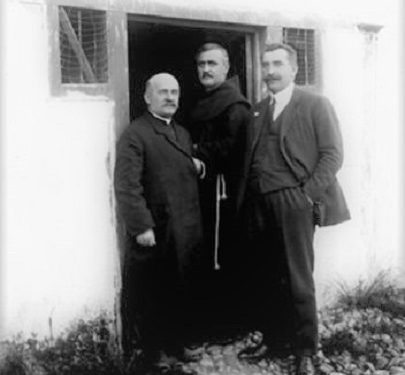
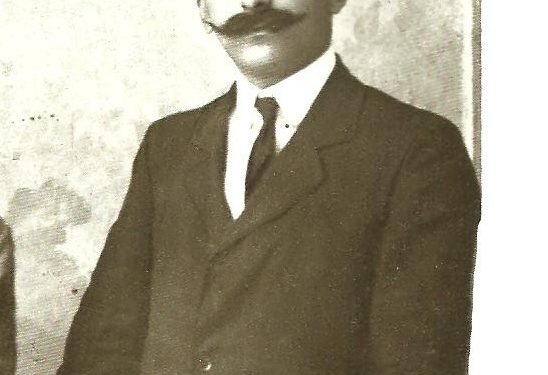
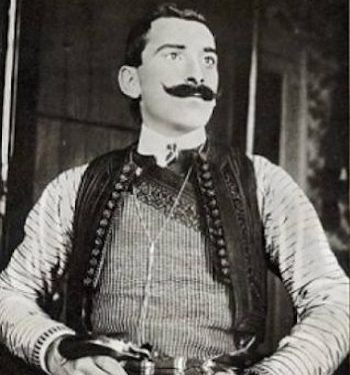
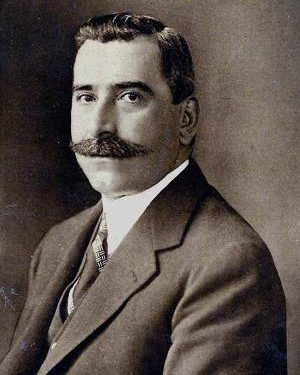
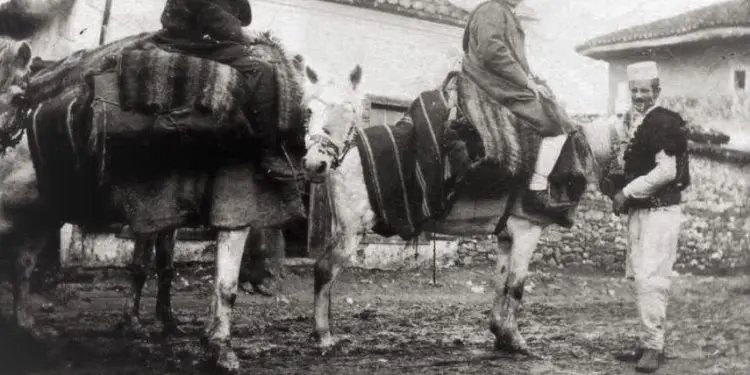
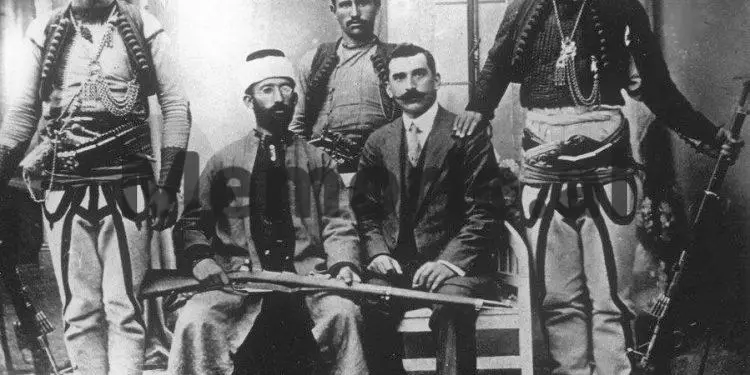
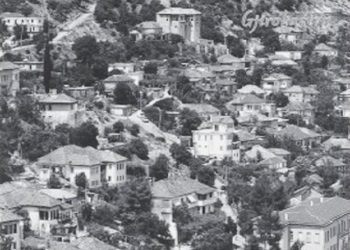
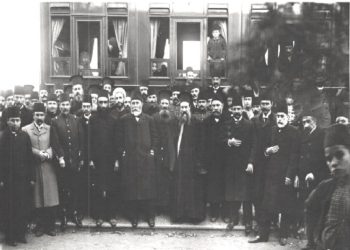
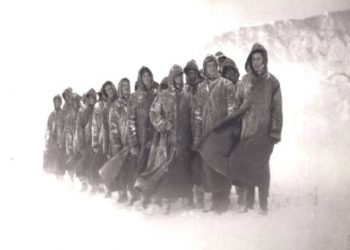

![“When the party secretary told me: ‘Why are you going to the city? Your comrades are harvesting wheat in the [voluntary] action, where the Party and Comrade Enver call them, while you wander about; they are fighting in Vietnam,’ I…”/ Reflections of the writer from Vlora.](https://memorie.al/wp-content/uploads/2025/06/admin-ajax-4-350x250.jpg)

